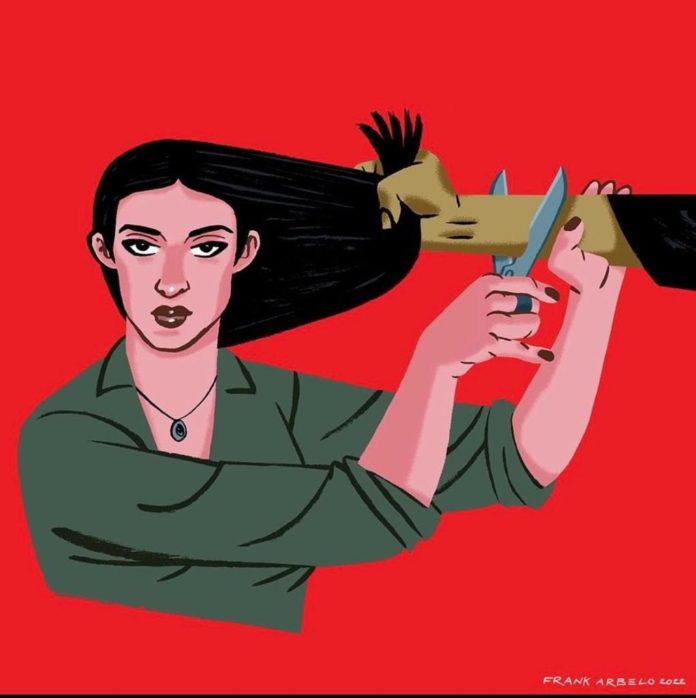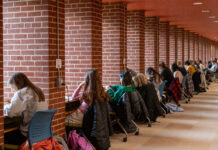CONTENT WARNING: This article contains mentions of violence and death. Please use caution before reading.
In mid-September, Slippery Rock students settled into their first weeks of the new academic year. Meanwhile, an ocean away, 22-year-old Kurdish Iranian woman Mahsa (Jina) Amini died at the hands of Iran’s morality police for allegedly wearing her hijab incorrectly.
As the fall semester developed at SRU, Iranian women and their allies across the globe channeled their fury at the recent injustices into protests for change. Here at Slippery Rock University, The Middle East Studies Center has held events to educate students and faculty on the Iranian women’s revolution.
The Center’s goals are to bring awareness to the SRU community about current issues in North Africa and the Middle East and develop friendship and solidarity between people of the United States and the aforementioned regions. Through education, the Center also aims to combat stereotypes of people from North Africa and the Middle East.
Fadoua Loudiy, assistant professor of Strategic Communication and Media with a specialty in transitional justice, co-directs the Center along with anthropologist and professor Axel Casson. In its programming this semester, the Center strives to encourage discourse about the “universality of our struggles, the universality of our rights,” Loudiy said.
She hoped to highlight the interconnectedness of the rights of women and other marginalized groups worldwide through two events that took place this fall: a documentary showing and a virtual panel of international scholars—both focusing on Iran.
“In American and European societies, [there is an idea that] Iranian women are ‘other’ and it’s their struggle, whereas for me, their struggle is connected to our struggle,” Loudiy said. “It’s the struggle of all women across the globe who have been impacted by patriarchal rules—and it’s [to] different degrees, but it’s the same issue across the globe.”
Faith Bajema, a senior public relations major with a certificate in Global and Intercultural Communication, has been keeping up with the news from Iran.
“I learned that those women are inspiring,” Bajema said, reflecting on the events she had attended through the Center throughout the years. “Against all odds, they are willing to fight for their rights. They face torture and even death for speaking out, but still, they refuse to stop fighting.”
Bajema has found that discourse surrounding the struggle of Iranian women has made its way into the classroom. Iran committed “a major breach of free speech” by cutting internet access across the country, which is especially relevant to her field as a communication major, Bajema said.
For the spring semester, the Center has a followup event to provide an update on the Iranian women’s revolution in the works. The SRU community can also look out for two cultural events: a Yemeni artist discussing the role of art in conflict and war and a guest speaker on writing and poetry in North Africa.
Bajema stated she was grateful that the Center has held such educational events. She looks forward to attending more and continuing to learn and stand in solidarity with Iranian women.
Loudiy spoke on what she hopes the global community gleans from the Iranian women’s revolution.
“I think there’s a lot for us to learn from it,” Loudiy said. “These women are willing to die to be free to express who they are. That’s incredible.”








